UK housing: Why you should bank on builders Barratt, Berkeley and Bellway
The Brexit debate over Britain's upcoming "Stay or Go" EU referendum has had some obvious effects in financial markets, not least on sterling, which has weakened markedly against both the US dollar and the euro in recent weeks.
A more surprising casualty of the economic uncertainty thrown up by Brexit is the UK housebuilding sector. Why should this be the case, given that this is an exclusively domestically-oriented industry?
Housebuilders have been left behind over the last month
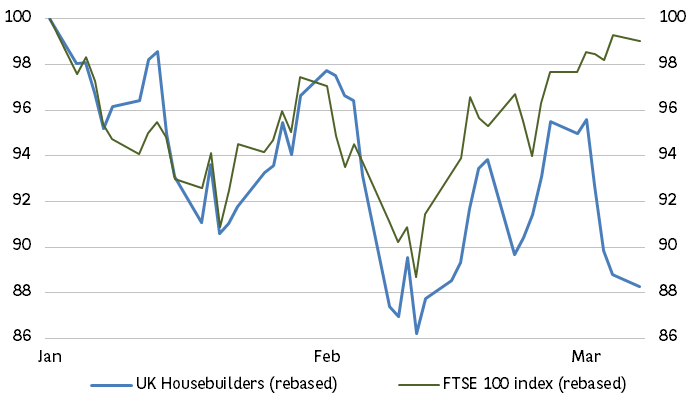
While the bellwether FTSE 100 stock market index has recovered nearly all of the ground lost between the start of the year and early February, housebuilders like Barratt Development, Berkeley Group and Bellway have struggled. Over the year to date, the FTSE 100 has lost just 1%, while these housebuilders have lost on average 12% (Chart 1).
But the long-term is a completely different story
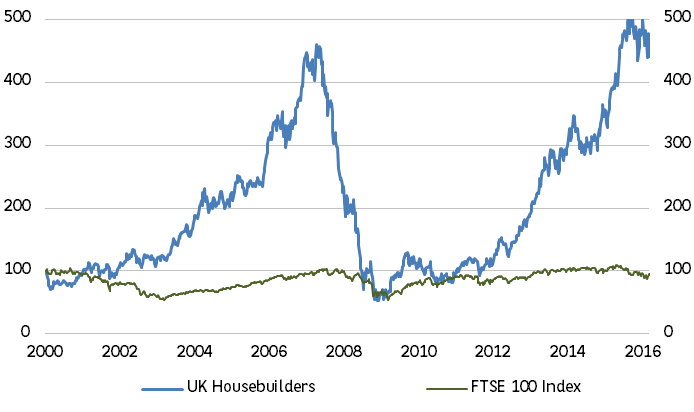
That is all very short-term. But if we pan out and look at a much longer time frame such as since the year 2000, we get a completely different story.
While housebuilders have enjoyed massive highs and suffered crushing lows over time, the last 16 years have seen house builders gain 340% while the FTSE 100 has gone precisely nowhere (Chart 2).
Investors worry about a construction slowdown
A key negative driving housebuilding shares lower is the worry that the UK construction sector is slowing down.
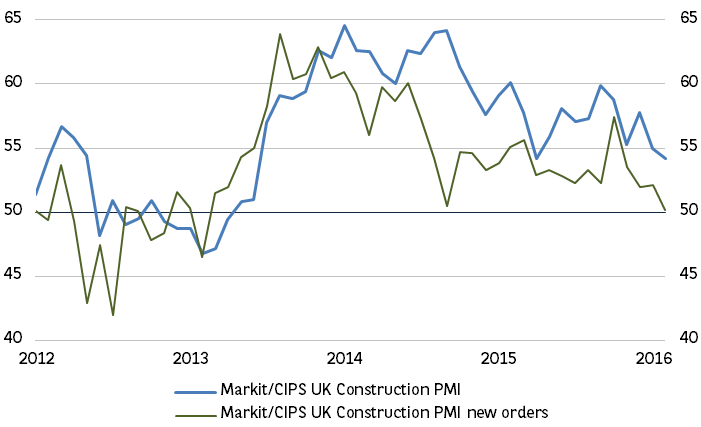
It is true that the recent Market/CIPS survey of activity in the sector revealed slowing growth but activity is still growing, albeit at a slower pace than previously. (Chart 3).
On the other hand, house price trends have remained remarkably robust, judging by the most recent readings from the Royal Institute of Chartered Surveyors' (RICS) monthly housing survey.
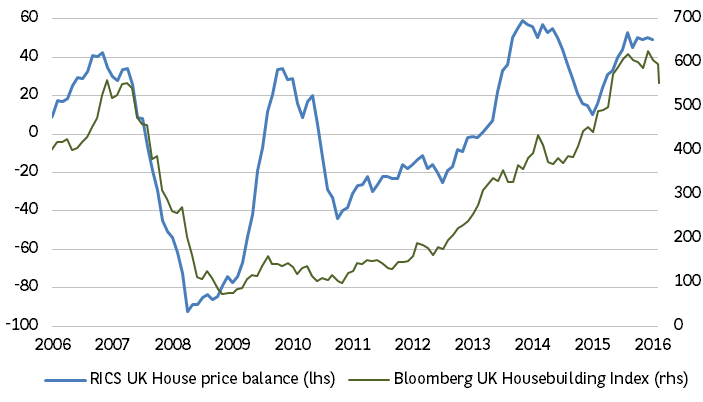
Over the long term, housebuilders have suffered when this RICS survey has pointed lower, but right now the RICS survey is hovering around historic high levels (Chart 4). Which should be very supportive for housebuilders, as they can then achieve better profits on new houses that they build.
Housebuilders are cheap and pay high dividends
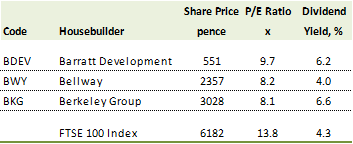
A key attraction of housebuilders right now is that they are much cheaper than the overall stock market. While the FTSE 100 is valued at a price/earnings ratio of 13.8 times (lower is cheaper, higher is more expensive), all three of Barratt, Bellway and Berkeley Group are valued at well under 10 times according to financial data website stockopedia.com (Chart 5), so much much cheaper than the average UK stock.
Secondly, all three Bs in the housebuilding sector offer excellent income potential with high dividend yields with Barratt and Berkeley in particular forecast to pay out income yields from dividends of over 6% in the coming year.
Bottom line: the stock market looks to have overreacted to short-term slowdown concerns in housebuilders Barratt, Berkeley and Bellway, giving an excellent potential entry point for the long-term, value-oriented investor. It could be a much better investment than, let's say, a buy-to-let property.
© Copyright IBTimes 2025. All rights reserved.




















